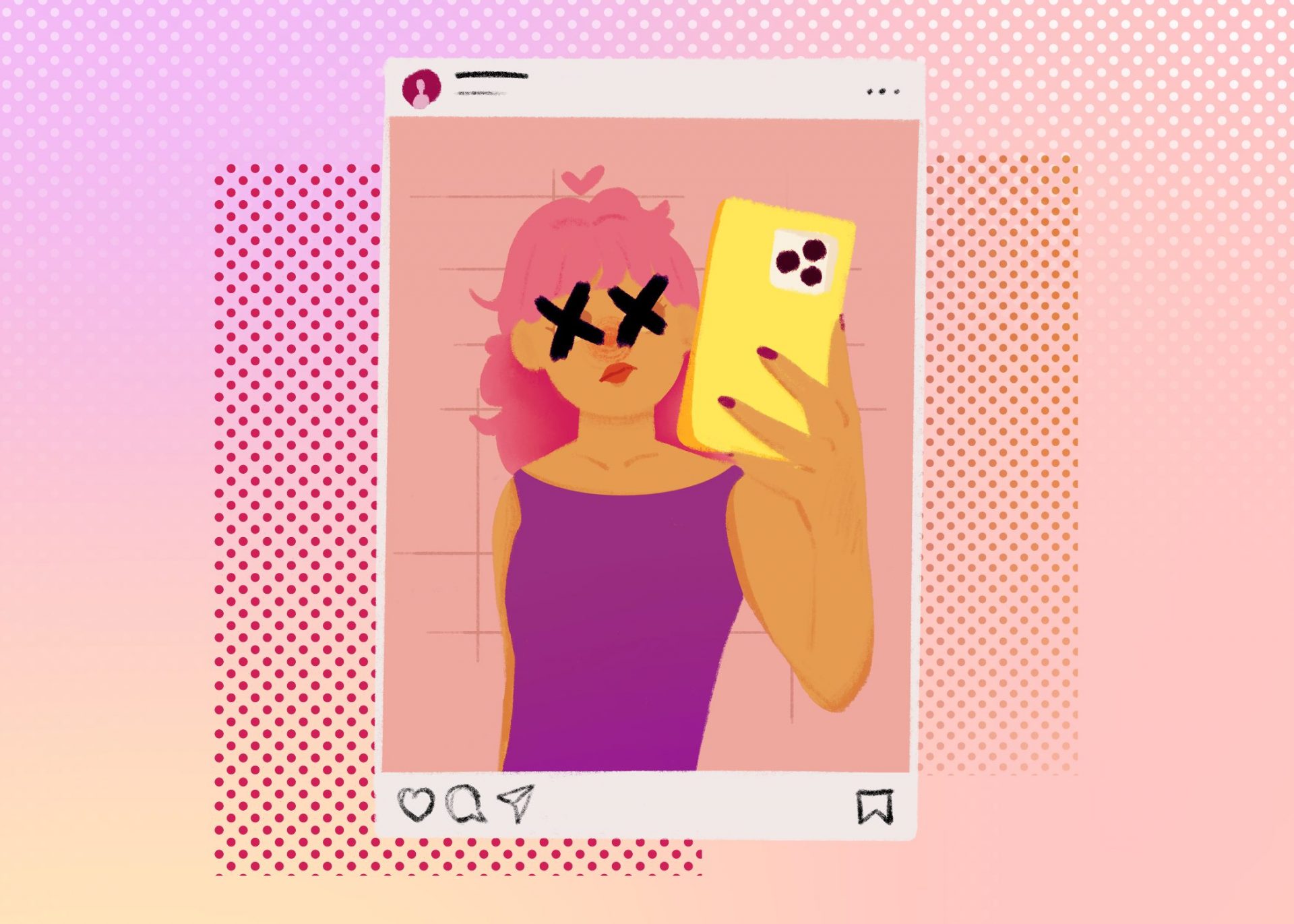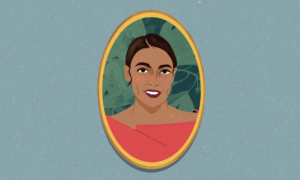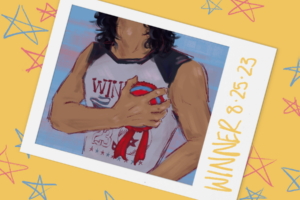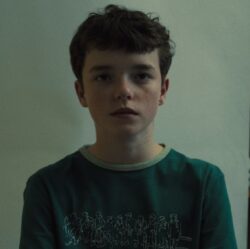I no longer exist…on Instagram. My friends have texted me messages along the lines of “Did you delete Instagram? So-and-so was asking if you were dead!” With our end-of-semester photo dumps, roommate shopping on @georgetownclassof20XX accounts, and screening of boys’ Instagrams to check for “red flags,” Instagram has become so rooted in our college life that it seems like our very existence depends on our online presence. So, now that I’ve deactivated my Instagram account, do I still exist?
As a member of Gen Z, I have heard plenty of the “social media is poison” and “dangers of the screenager” sermons from my elders—many of whom seem to be equally addicted to social media (why is my dad on Facebook Reels?) Given that we’ve already heard plenty of those tirades, I’m not here to advocate for you to reduce your screen time. Rather, I’m asking you to reimagine a world where your experiences exist solely in the moment instead of being immortalized in a post, where people meet you for the first time in the flesh before they pre-screen your social media profile, and where your real life identity matters more than your online one.
Before I deleted Instagram, I used to curate the perfect post to portray myself as a mysterious artsy girl. I viewed my Instagram account as my résumé to the world, so that anyone who viewed my profile would bestow their unspoken stamp of approval. I tirelessly scrolled through my camera roll to hunt for worthy photos, the glowing screen searing my corneas. However, I always felt like my social media identity fell short of the Instagram girl I wanted to be. I didn’t feel “cool” enough. My outfits felt boring, photos were never at the right angle, or my posts didn’t prove I was having enough fun. I could tell you about body image issues that social media amplifies. The dominance of eurocentric beauty standards that, I, as a person of color, can’t ever meet. The material demands of keeping up with fashion trends, and the very economic pressures of “having fun,” like traveling and eating out. All of this led me to the point where my own self perception of daily life overshadowed the way others on Instagram perceived me.
For example, if I had a great day hiking down a ravine to a secret beach, but did not have photos to post, I felt like that day didn’t happen. I legitimized my life by making my Instagram followers witness to it. But while I was putting effort into portraying my life as cool and interesting, I could have been working toward actually becoming a better person in real life.
A part of becoming a better person is also becoming a better friend. To me, Instagram felt full of loosely connected and distant friendships. I would numbly scroll past faces that were empty to me—friends of friends I vaguely knew from my old hometown or people I followed just because they had “Georgetown” in their bio. It felt inhumanely impersonal that their faces only received a millisecond of my attention and then with a swipe of my finger, they left my mind. The brevity of an Instagram interaction—a like, comment, or view—made me feel more lonely, like the thousands of so-called Instagram friends were just phantoms that passed through my screen. Social media is meant to help people stay connected with each other. Instead, I felt detached and dizzy.
My paradoxically overly-conscious and severely-subconscious use of Instagram led me to delete my account. But what about things I was missing out on?
I couldn’t see photos from my close friends when we were apart during the summer. I missed out on those hilariously specific memes and reels and brilliant creatives who use Instagram to share their art. I also struggled with navigating Georgetown’s extracurriculars and social life as many clubs use social media to communicate application deadlines, upcoming events, or even to share photos of their “new hires.”
But in reimagining an alternate way of being without Instagram, I found replacements and substitutes. I started making more of an effort to call or Facetime my friends, replacing a “like” with conversations filled with: “wait tell me more about…” I started sending more text messages, asking friends for life updates and private “photo dumps.” I also tapped back into the lost art of snail mail, sending poems, birthday cards, and postcards to my friends. However, I’m not perfect at staying in touch. There will be relationships that I will lose over time now that I’ve cut the fragile string of Instagram that was holding them together—but maybe that is just more natural. I’d rather be more intentional and active in my relationships, even if it’s just a handful.
Now, I feel more aware of the world around me. I get fashion inspiration from people-watching on the train, and I remember to look up at the sky every now and then. I enjoy nature through the lens of my own eyes rather than the lens of my iPhone camera. In addition to feeling more connected with others and my environment, I also feel more connected to myself. I focus less on constructing my social media identity and more on how my actual lived experiences develop me as a person. Instead of obsessing over superficial ways to create an “aesthetic,” I’m starting to feel like I could be “enough.” I’m no longer falling short of an aestheticized version of my life because it doesn’t even exist. I realized that it’s enough for me alone to witness my life experiences.
Even though I’m “dead” on Instagram, I feel the most alive I’ve ever felt before.






